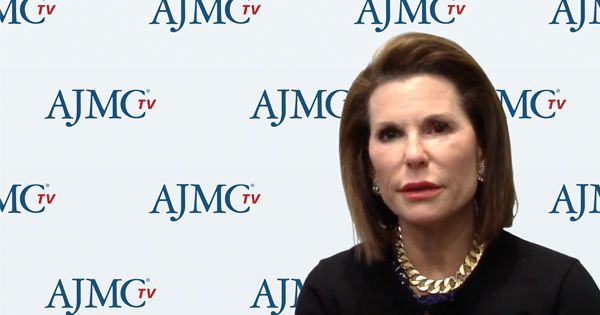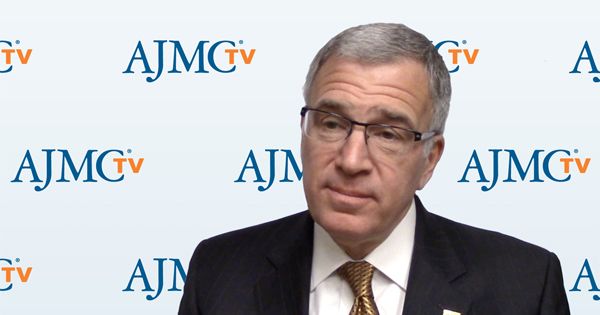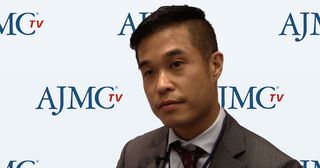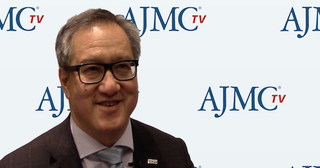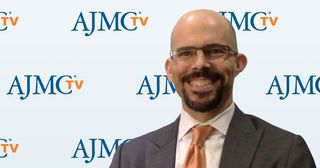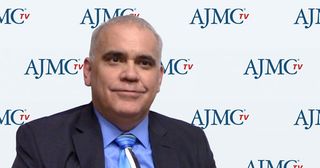
Oncology
Latest News
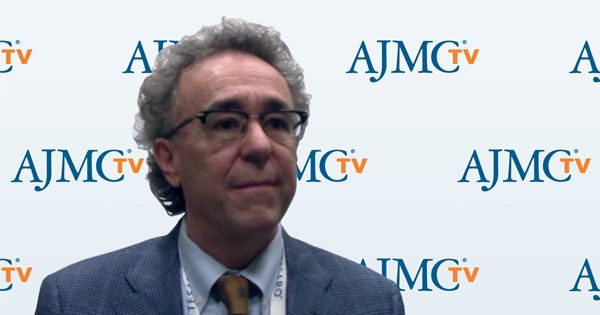
Latest Videos

CME Content
More News

I think the hardest thing about advanced and recurrent endometrial cancer is that the outcomes are still fairly poor, explained Victoria Bae-Jump, MD, PhD, associate professor, gynecologic oncology, University of North Carolina Lineberger Comprehensive Cancer Center.

Researchers from Mexico recommend conducting a pulmonary function test in patients with non–small cell lung cancer (NSCLC) undergoing concurrent chemoradiotherapy to assess their susceptibility to developing radiation pneumonitis.

We have a number of biomarkers that we have shown are associated with a better response to certain new therapies, said Oliver Dorigo, MD, PhD, associate professor, obstetrics and gynecology, Stanford University Medical Center.

The current issue of Evidence-Based Oncology™, a publication of The American Journal of Managed Care®, examines how new reimbursement models are making cancer care more patient-centered, but making those models sustainable is challenging.

Dr Alvarnas is editor-in-chief and director of Value-Based Analytics at City of Hope, Duarte, California.

The partnership will aid patients in an era of high-deductible health plans, which call on patients to make more of their own healthcare decisions.

A new blood test could negate the need for bone biopsies to diagnose a variety of cancers, including multiple myeloma. The test uses a small, low-cost plastic chip that delivers the same diagnostic information of a biopsy through a simple blood draw.

ASCO reviews clinical pathways; Flatiron Health acquired

Ray Page, DO, PhD, president and director of research at The Center for Cancer and Blood Disorders and chair-elect of the American Society of Clinical Oncology’s (ASCO) Clinical Practice Committee discusses the first results of the Oncology Care Model (OCM) and ASCO’s top legislative priorities.

Every week, The American Journal of Managed Care® recaps the top managed care news of the week, and you can now listen to it on our podcast, Managed Care Cast.

With chimeric antigen receptor (CAR) T-cell therapy being so new, there is going to be a learning curve as providers become more educated about the treatments, the manufacturing process, and the toxicities, Houston Holmes, MD, MBA, FACP, a medical oncologist with Texas Oncology, explained at the Community Oncology Alliance’s (COA) 2018 Community Oncology Conference.

Reimbursement models, novel gene therapy–based treatments, and price transparency: these were some of the topics covered by presenters and panelists at the annual meeting of the Community Oncology Alliance.

Martha Gaines, MD, JD, LLM, founder and director of The Center for Patient Partnerships, clinical professor of law, University of Wisconsin Law School, explains how she turned her experience as a cancer survivor into a model for consumer-centered patient advocacy.

This week, the top managed care stories included a new bill in Congress to tackle the opioid epidemic; an analysis that warns against including drug costs in bundled payment models; the FDA commissioner shares ideas to improve innovation and access to next-generation sequencing.

Having numerous therapies to treat prostate cancer can actually be a bad thing—it makes it difficult to design clinical trials for new therapies coming into the space, explained Joe O'Sullivan, MD, FRCR, clinical professor, School of Medicine, Dentistry and Biomedical Sciences, Queen's University Belfast.

A group of Democrats unveil a bill to set up a new public health insurance option; a look at the health challenges that persist in Puerto Rico after Hurricane Maria; married people are more likely to get diagnosed early and be treated in a timely fashion for melanoma.

A novel drug that targets MDMX and MDM2, which inhibit a protein that suppresses tumors when they are overexpressed, has tripled the median survival rate in an animal model of human acute myeloid leukemia, according to new research.

Early feeding, euvalemia, and multimodal pain management can be used to to accelerate surgical recovery and improve outcomes in gynecologic oncology, explained Sean C. Dowdy, MD, chair, division of gynecologic surgery, department of obstetrics and gynecology, Mayo Clinic.

Coverage from the Association of Community Cancer Centers’ 44th Annual Meeting & Cancer Center Business Summit, March 14-16, 2018, in Washington, DC.

Thomas LeBlanc, MD, of the Duke Cancer Institute, addresses the importance of adding a palliative care specialist to the cancer care team.

The increased risk of cancer in patients with HIV has been well defined, and some studies have suggested that patients with HIV have not only a higher risk of lung cancer, but also an increased risk of mortality from their cancer than patients without HIV.

An analysis of a hypothetical bundled payment that included drug costs would unfairly penalize practices based on patient mix and could destabilize the cancer care delivery environment, according to research published in the Journal of Oncology Practice.

Coverage from the American Society of Clinical Oncology Genitourinary Cancers Symposium, held February 8-10, 2018, in San Francisco, California

The high cost of new, innovative cancer treatments coming to market makes these therapies inaccessible to a lot of patients, said Michele McCourt, senior director of the CancerCare Co-Payment Assistance Foundation.

This study compares the well-being of long-term cancer survivors with that of US residents of similar age and demographic characteristics, patients recently diagnosed with cancer, and individuals with chronic illness.

